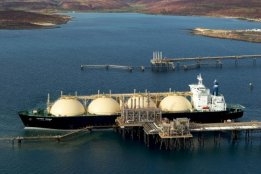The environmental soundness of using liquefied natural gas (LNG) as a marine fuel is being brought into question after a

The environmental soundness of using liquefied natural gas (LNG) as a marine fuel is being brought into question after a new report highlighted concerns over how LNG itself is extracted from the ground, processed, distributed, and used, the University of Delaware announcedthis week.
University of Delaware professor James Corbett, who has spent 15 years working on environmental policy in global shipping, found in his latest report that although using LNG would reduce marine emissions, there was little infrastructure in place to minimize greenhouse gases during the natural gas extraction process.
“Local and regional air pollution benefits of liquefied natural gas are a slam-dunk over traditional marine fuels, and the long run price of LNG looks to be advantageous," he said.
"But LNG was not a clear winner for climate change with regard to greenhouse gas implications, especially if the fuel supply infrastructure is not designed to minimize natural gas losses.”
Corbett added that a well-managed transition to LNG a as marine fuel would require a "carefully constructed infrastructure development policy," noting that the only scenarios where LNG proved to be environmentally superior to normal diesel-powered ships were when there was low-greenhouse gas LNG infrastructure in place, and advanced combustion technologies to reduce methane leakage.
LNG has so far been widely regarded as a way to cut emissions from the shipping sector, though uptake has so far been slow, initially due to the lack of widespread LNG infrastructure, and more recently due to plummeting oil prices reducing the gas price advantage.
However In June, Ship & Bunker reported that tighter sulfur caps were expected to hasten the adoption of LNG bunkers.
HEADLINES
- Do shipping markets want Biden or Trump for the win?
- All 18 crew safe after fire on Japanese-owned tanker off Singapore
- Singapore launching $44m co-investment initiative for maritime tech start-ups
- Cosco debuts Global Shipping Industry Chain Cooperation Initiative
- US warns of more shipping sanctions
- China continues seaport consolidation as Dalian offer goes unconditional